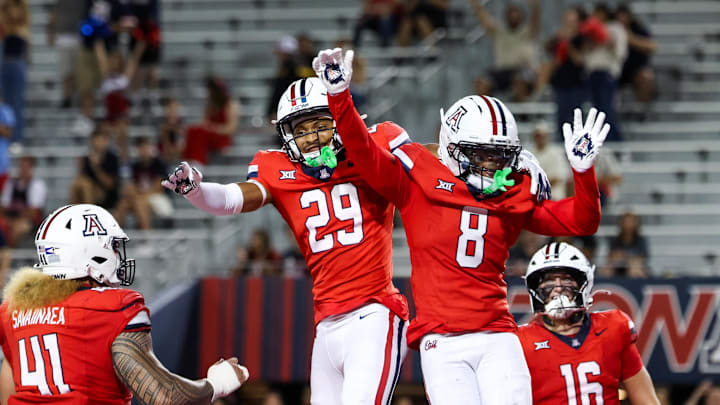The NCAA Division I Board of Directors adopted a couple of new NIL rule changes on Thursday, as reported by Dan Murphy of ESPN. Schools can no longer guarantee a player any money from a third-party deal and all collective and booster deals must include a specific "direct activation" per Murphy.
Murphy stated on social media that both of those rules give a little more backing to adapt some of the ways collectives are paying to get more money to players in "above the cap" payments. Murphy continues in the first case, some schools that signed deals with their athletes to cover the full NIL costs if a collective couldn't pay its bills.
Schools that signed the above types of deals before July 1 will now have that money count against their spending cap per Murphy. The second rule addresses Murphy called "warehousing," which is when a collective plays for a player's NIL rights while promising to use them later without a specific endorsement in mind.
The final part, per Murphy, makes it difficult to access value for NIL deals. A third part of the new boundaries is high school recruit disclosure, which will require prospects to report their NIL deals to the NCAA Clearinghouse at the time of enrollment.
Both these rules give a little more backing to the CSC's efforts to adapt to some of the ways collectives are paying to get more money to players in "above-the-cap" payments.
— Dan Murphy (@DanMurphyESPN) October 2, 2025
Reporting to the clearinghouse is intended to provide more transparency and oversight for deals made during recruitment before a player officially joins their collegiate program. Eliminating the guarantee for third-party deals closes a loop when schools would promise to make up the difference for a failed collective payment.
If a school makes the above promise, it will now count against the school's spending cap. Proof of activation will require schools to have payments tied to something specific, like a social media post, a personal appearance, or a promotional event.
The second rules addresses "warehousing," where a collective pays for a player's NIL rights with a promise to use them later but no specific endorsement in mind. That makes it hard for CSC to assess the market value of the deal.
— Dan Murphy (@DanMurphyESPN) October 2, 2025
The proof of activation refers back to the warehousing mentioned by Murphy, where athletes would receive upfront money without any identifiable future requirements of services. The intention is clearly for athletes and programs to be more accountable and transparent in their actions.
What the New Changes Hope to Accomplish
The new rules established by the Division I Board of Directors are designed to reduce the influence of money and NIL in the recruiting process. The revised NIL regulations are also being created to offer clearer guidelines on what athletes need to deliver in exchange for their earnings.
The biggest question from fans to Murphy in his social media posts was how these rules are going to be enforced and whether they are legal. Enforcing the written NIL deals will be far less difficult than anything stated verbally by an athletic program to a prospective athlete during a recruiting visit or after that.
